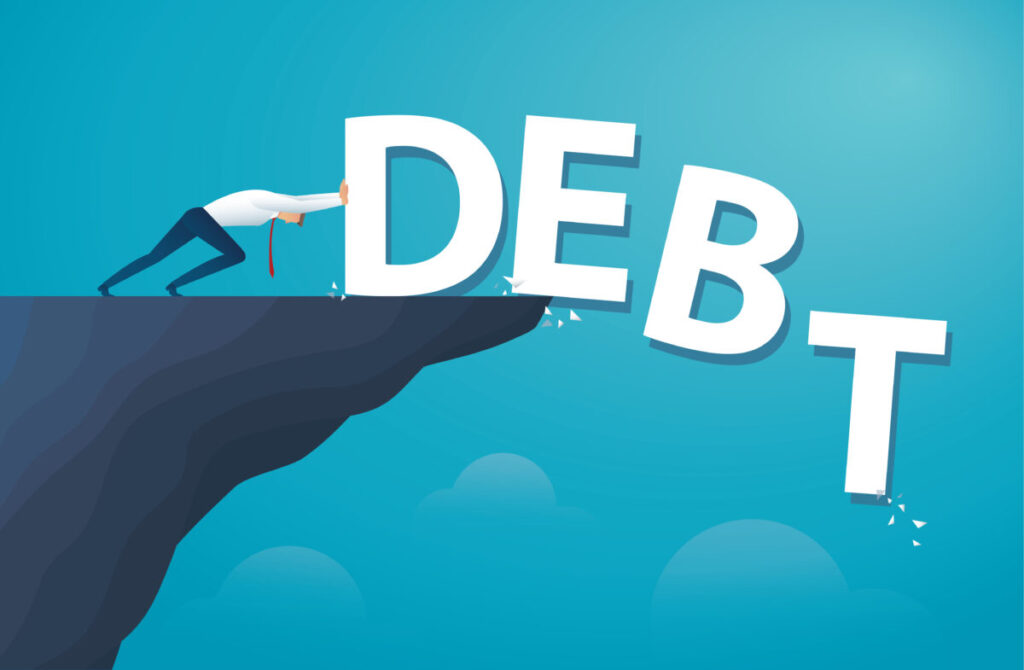About Debt Settlement in Scotland, Connecticut
Debt settlement should only be used as a last resource, other than bankruptcy. It definitely should not be your first option. This article includes important information regarding debt settlement, including a little on bankruptcy. Such as knowing when the time is right to look into debt settlement services. You need to know this information on bankruptcy and debt settlement prior to signing up with either of them.
How can debt settlement in Scotland, Connecticut be beneficial for you?
You can find a debt settlement company in Scotland, Connecticut, that has the capability to negotiate with your collectors and creditors to get the number of your debts lowered by as much as 40 to 60%. This means that you may only have to pay back a part of the original amount of your debts, like only 50% or even less than that.
Perhaps you fall in the category of those who cannot easily carry on a conversation with business perspectives. If this is the case, then you will find debt settlement services right up your alley, and that is because they will do all the footwork, as well as the talking that will need to be done with your collectors and/or creditors for you.
Be sure to do some digging on any debt settlement company you are considering signing up with. A few of the things you can start out doing is to contact the Attorney General’s office in your state. You can also check with the Better Business Bureau (BBB), and this should include your local consumer protection agency. These places will be able to tell you if the companies are legit and if there have been any complaints registered about them.
Gather information such as:
The different services they can provide you through their programs. Find out how long it takes to complete settling your debts and what the total costs are going to be, including the application fee, the fees for their services, and the charge for each debt when it has been settled. Also, find out the amount you will end up investing throughout the program.
If you come across an agency that asks you for large amounts of funds up-front, just walk away! The law states that debt settlement companies are not allowed to ask for money until they have completed a debt for one of your collectors or creditors.
Make sure the company is going to be willing to be supportive throughout the program. Also, they should be willing to help you over the telephone, in person, and on the internet. The three ways above are all recommended. A good company is going to offer all three of these ways.
Remember, some debt settlement companies use the statement “Non-Profit” along with their title; know this: Although it may say they are non-profit, it does not mean that they are going to be more affordable, and it certainly does not mean they are even a legitimate business. Furthermore, many debt settlement companies are charging much higher service fees, interest rates, and higher percentage costs for their work. Watch out for companies like this, for they are scamming you.
Using one of your own assets for collateral is one of debt settlements’ biggest risk
Debt settlement companies are going to ask that you put some type of asset as collateral. This is only fair since they are only trying to protect themselves. After all, they are loaning you the money to help with paying off your debt, now, they will add the loan they give to you with the rest of the costs that accumulate, and you will be repaying them a little at a time with each monthly installment you make. The collateral is their insurance that they will be getting back at least some of their funds back.
The loan will not be given without collateral. Many people put their vehicle, but unless it is a valuable vehicle, they might not accept it. The other thing used the most for collateral is their homes. This is risky because you could forfeit your collateral simply by missing an installment or by just being late on your installment.
Should people use debt settlement as a last option?
As their last option is the only time, one should use debt settlement. When talking about the last option regarding debt settlement refers to a person who has no other options left that are available to them except for filing for bankruptcy. However, for this article, let’s just say that bankruptcy is not an option; this might help to understand the importance of “trying to never use bankruptcy if there is another way for you to go.”
The reason most people select the option of debt settlement over filing for bankruptcy is that debt settlement is not going to do as much damage to your credit (at least not in the long run). Bankruptcy will remain on your credit report for several years longer than debt settlement is going to, and bankruptcy will hang over your head and stay with you in everything you do for as long as you live. Bankruptcy is by law considered to be a matter of public record; debt settlement is not.
Anyone will be able to find out about your bankruptcy, even after your debts have been settled. Although debt settlement will show up on your credit report during the time you are working with a debt settlement program, it does not give off a bad first impression like bankruptcy does.
Furthermore, because it is not a matter of public record after your debts are settled or the 7 years that it has to stay on your credit report until your debts have been completed, the debt settlement will be taken off your credit report, and it will not follow you. In fact, if you get a good debt settlement company, they will also be willing to help you with repairing your credit score and good standing.
How much is debt settlement going to cost me?
In order to calculate the cost, let’s begin with the application fee, plus a percentage of 10 to 25% for service fees, which can be taken in one of two ways: the amount of the monthly installment for your escrow account where the money stays until it is time to pay the creditors and/or collectors. What’s more, you have the right to any interest made off the escrow account.
You can choose one of the two different methods they use in getting their percentage for their service provided; they are:
They can charge a percentage of the debt amount you signed up with. This means that if you signed up with a debt amount of $10,000 and they want 10%, this would be 10% of $10,000 = $1,000. So, the service fees, in this case, would be $1,000 you owe the debt settlement company for those fees.
Should you want them to use the second method, it means they would charge a percentage of 10 to 25% of the amount of the debt that gets written off or the amount of money you saved. Once calculated as above in the first method and add to the application fee, it will give you the total cost using method two. So, method two consists of taking 10 to 25% of the funds you saved when debt settlement services were negotiated with your collectors and/or creditors, having them agree to write off half of the amount you originally owed them.
All the negotiating that debt settlement services go through is what gets your monthly installments, and interest rates reduced as low as they possibly can.
In this case, you saved 50% of $10,000, or rather you saved $5,000. Now you have an application fee and the debt settlement services fee totaling (10% of $5,000), plus the $5,000 you currently owe to your creditors and/or collectors.
Did you know you have to pay taxes on settled debts and write-offs?
When a debt is settled or has been wrote-off, your collectors and/ or write-off will be waiting to receive your copy of form 1099-C when you file your tax return.
The IRS considers a settled debt, a write-off, and a debt that has been paid in full as taxable income. If you do not send in your copy of the form 1099-C with your tax return, the IRS will think there may be a foul play on your part and audit you (they can choose to audit you going back as many years as they feel necessary).
Some of the advantages that come from debt settlement
between 10% to 25% of the amount of debt you originally signed up with or 10% to 25% of the amount you saved from working with the debt settlement company. You may be asked to pay for your application fee upfront, however, but the service fees do not get paid until after the debt has been settled. Each debt is paid individually as they are settled.
When working with debt settlement services, you do not have to stress over having to speak to them personally because they will do all that for you. They are going to negotiate with each of your creditors, as well as any collectors that have been being a thorn in your side, by calling two and three times a day. They are experienced with negotiating with them and know just what they want to hear. This is how they go about getting your monthly installments and interest rates as low as they do.
Many debt settlement companies offer to help in repairing your credit when all your debts have been completed.

